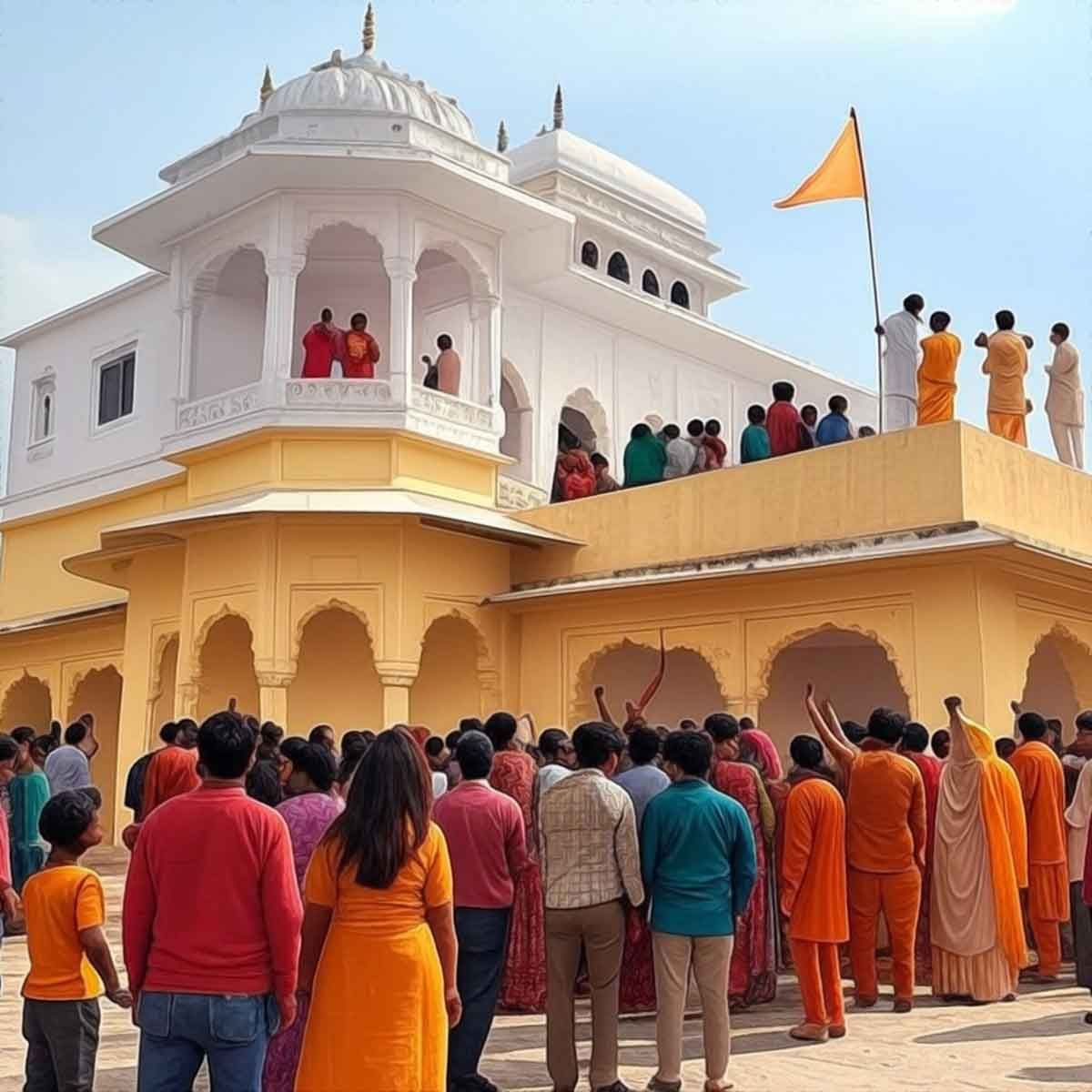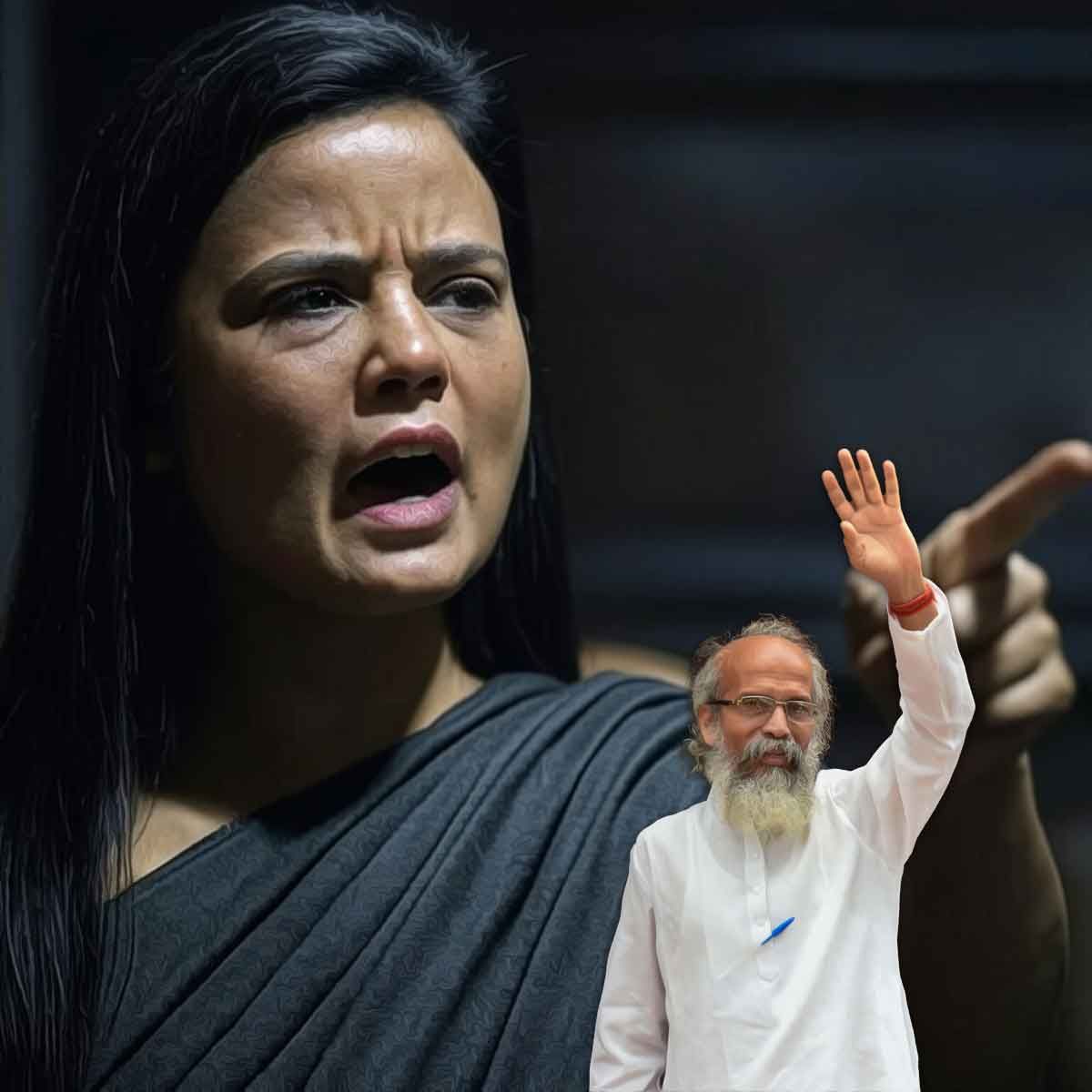More Coverage
Twitter Coverage
JOIN SATYAAGRAH SOCIAL MEDIA
"Law is not law, if it violates principles of eternal justice": Justice DY Chandrachud is set to become India’s 50th CJI, a judge known for his often liberal and dissenting views has been part of some landmark verdicts of Ayodhya, Section 377 & Sabrimala

As Chief Justice of India UU Lalit’s short tenure of fewer than three months nears an end, he has named his successor. Taking over the reins will be Justice DY Chandrachud.
|
Chief Justice Lalit, who retires on 8 November, has handed over the letter of recommendation to Justice Chandrachud. This means the CJI cannot call any meeting of the collegium, the Supreme Court body for an appointment, or fill existing vacancies in the top court.
Justice Chandrachud’s recommendation was made in a full court meeting on Tuesday held by judges of the top court. He will assume charge as the 50th Chief Justice of India on 9 November and will have a tenure of two years. He is slated to retire on 10 November 2024.
Son of India’s longest-serving CJI
Born on 11 November 1959, Justice DY Chandrachud is the son of India’s longest-serving Chief Justice Yashwant Vishu Chandrachud. His mother Prabha was a classical musician.
He went to Mumbai’s Cathedral and John Connon School and then graduated from Delhi’s prestigious St Stephen’s College. He studied law at Delhi University and secured a master’s degree from Harvard Law School in the United States. He also completed a doctorate in judicial science from the institution.
At the age of 39, he was one of India’s youngest lawyers to be designated a senior advocate. In 1998, Justice Chandrachud has served as the Additional Solicitor General of India.
He was appointed a judge in 2000, even before he had turned 42. He was sworn in as the Chief Justice of the Allahabad High Court in 2013 and has been associated with the Bombay High Court where he served for 13 years. He was elevated as a judge in the Supreme Court in 2016.
|
The big verdicts, from Ayodhya to Sec 377
Since being elevated to the Supreme Court, the judge has been part of several benches which delivered landmark judgments. He was in the scheme of things for the setting up of a five-judge bench from its inception to hear the Ayodhya dispute. Then Chief Justice Ranjan Gogoi had handpicked only those who by seniority would go on to take up the top job.
Justice Chandrachud proactively involved himself during the Ayodhya hearing and put some searching questions to the counsel for both the Muslim and Hindu sides, according to a report by the news agency PTI.
Though CJI Gogoi read out the unanimous judgment, which cleared the way for the construction of the Ram Temple at the disputed site in Ayodhya, it did not carry the author’s name, breaking away from convention. However, from the judgment’s printed version – the use of distinct fonts and style – it was clear that the author was Justice Chandrachud, reports The Times of India.
Justice Chandrachud was part of the five-bench judge led by then CJI Dipak Misra that decriminalized Section 377 on 6 September 2018. During the first day of the hearing of petitions challenging the colonial era provision that criminalized same-sex relationships in July 2018, he said, “A person’s choice of a partner is a fundamental right, and it can include same-sex partner.”
|
He also wrote the lead judgment for the constitution bench in the Justice KS Puttaswamy versus the Union of India case, in which it was unanimously held that the right to privacy is a fundamental right under the Constitution.
The senior judge was also part of the bench that ordered that Section 497 of the Indian Penal Code that criminalized adultery was unconstitutional on the ground of being arbitrary, archaic, and violative of the right to equality and privacy.
In the Sabarimala case, Justice Chandrachud concurred with the majority verdict that the practice of prohibiting women of menstruating age from entering the Kerala temple was discriminatory and violated fundamental rights. He was also part of the crucial verdict which recognized “living will” made by terminally ill patients for passive euthanasia.
Notes of dissent
In October 2018, he delivered two powerful dissent notes in the Aadhaar case and the arrest of activists inciting the Bhima-Koregaon violence, placing personal liberty above the government’s power to curb fundamental rights for the larger public interest, reports ThePrint.
In his dissent, Justice Chandrachud declared that Aadhaar Act did not satisfy the standards for a money bill. He also said that the Act was unconstitutional on various counts.
While the Supreme Court verdict in a 2:1 judgment ruled that it would not set up a court-monitored investigation into the alleged role of five arrested activists in the caste violence that took place at Bhima Koregaon on 1 January 2018, Justice Chandrachud said that the court should establish a Special Investigation Team to look into the matter.
|
Overturning his father’s judgments
Interestingly, the stance taken by Justice Chandrachud on privacy and adultery was different from that of his father.
In 1985, the then CJI YV Chandrachud along with Justices RS Pathak and AN Sen upheld the validity of Section 497. Thirty-three years later, the son overturned the verdict and said, “We must make our judgments relevant to the present day.”
“It is common to find instances of working women, who take care of the home, get beaten up by their husbands, who don’t earn. She wants a divorce. But the matter remains pending in court for years. If she looks for love, affection, and solace in another man, can she be deprived of it,” Justice DY Chandrachud had asked.
Before the Supreme Court declared privacy a fundamental right in 2017, the matter did not find favor in the court on previous occasions, reports India Today. One of the judgments, of which senior Justice Chandrachud was a part, dismissed the argument that privacy was a fundamental right.
The verdicts were delivered in the ADM Jabalpur case by the Supreme Court bench comprising the then CJI AN Ray and Justices YV Chandrachud, PN Bhagwati, MH Beg, and HR Khanna in 1976. More than 40 years later, Justice DY Chandrachud wrote that the ruling was “seriously flawed”, according to the report.
The controversies
Justice Chandrachud is often considered the darling of liberal India but has been part of rulings that this section would not consider favorable. He wrote unanimous judgments in the case about the death of judge BH Loya and the CJI being “master of the roster”.
In the first case, the ruling came as a relief for the government and in the second it favored then CJI Dipak Misra who was being criticized for his administrative decisions, according to a report in ThePrint.
Already a household name, Justice DY Chandrachud’s new stint is much-awaited.
References:
 Support Us
Support Us
Satyagraha was born from the heart of our land, with an undying aim to unveil the true essence of Bharat. It seeks to illuminate the hidden tales of our valiant freedom fighters and the rich chronicles that haven't yet sung their complete melody in the mainstream.
While platforms like NDTV and 'The Wire' effortlessly garner funds under the banner of safeguarding democracy, we at Satyagraha walk a different path. Our strength and resonance come from you. In this journey to weave a stronger Bharat, every little contribution amplifies our voice. Let's come together, contribute as you can, and champion the true spirit of our nation.
 |  |  |
| ICICI Bank of Satyaagrah | Razorpay Bank of Satyaagrah | PayPal Bank of Satyaagrah - For International Payments |
If all above doesn't work, then try the LINK below:
Please share the article on other platforms
DISCLAIMER: The author is solely responsible for the views expressed in this article. The author carries the responsibility for citing and/or licensing of images utilized within the text. The website also frequently uses non-commercial images for representational purposes only in line with the article. We are not responsible for the authenticity of such images. If some images have a copyright issue, we request the person/entity to contact us at This email address is being protected from spambots. You need JavaScript enabled to view it. and we will take the necessary actions to resolve the issue.
Related Articles
- Deputy CM Manish Sisodia’s close aid Nisha Singh held guilty and sentenced to 7 years in prison for inciting violence: A bevy of eminent intellectuals called it a political vendetta to whitewash her criminal behaviour
- Notice issued to Central govt on plea challenging the constitutional validity of Waqf Act 1995 by Delhi High Court: Ashwini Upadhyay filed the plea that Waqf Act is antithetical to Secularism in India
- Justice Gaurang Kanth who took oath as judge of the Calcutta High Court this morning, his letter surfaced recently where he was seeking suspension of police officers who failed to keep the door of his residence locked resulting in the loss of his pet dog
- In a case regarding child custody of 11-year-old Kanak, Court orders minor girl to be sent to Nari Niketan: Rajasthan
- "To no one we shall sell, to no one we shall deny or defer right or justice": Delhi High Court refuses to entertain Sameer Wankhede plea seeking protection in the disproportionate assets case, came to limelight as NCB questioned celebrities in drugs case
- "Mediocre minds usually dismiss anything which reaches beyond their own understanding": Allahabad HC dismisses PIL seeking Judicial Probe into death of 63 children at Gorakhpur Hospital in 2017, UP Govt had terminated services of Dr. Kafeel Ahmad Khan
- 'Every sinner has a future': Bombay HC suspends Nijam Asgar Hashmi's life sentence, convicted for beheading Umesh Ingale, his girlfriend’s cousin; questions evidence led by Hashmi, who invited Ingale for "sheer khurma" on Eid just to get rid of him
- "In law, not all authorities are 'public'": In a twist that could inspire satirists everywhere, the Bombay High Court clarifies that the Archbishop of Goa isn't under RTI, apparently, divine decrees are no match for bureaucratic ones in the court of law!
- “Talking about justice, doing injustice is indeed unfair conduct and hypocrisy”: HC grants divorce citing cruelty by wife who taunted polio-stricken husband's disability, snatched his crutches, manhandled & threw him around, orders man to pay 25L alimony
- "ॐ नमः शिवाय": A Varanasi court allowed carbon dating of the Gyanvapi mosque, located next to the Kashi Vishwanath Temple, Archaeological Survey of India will carry out the scientific survey of the complex, wait of Nandi may be ending soon






















